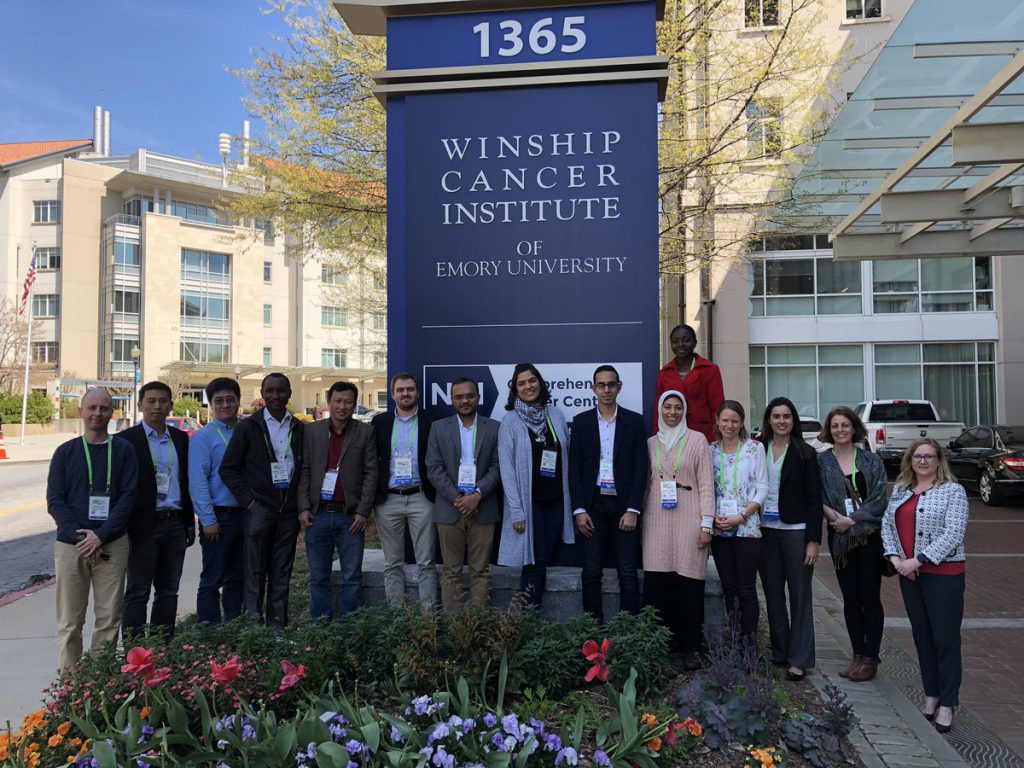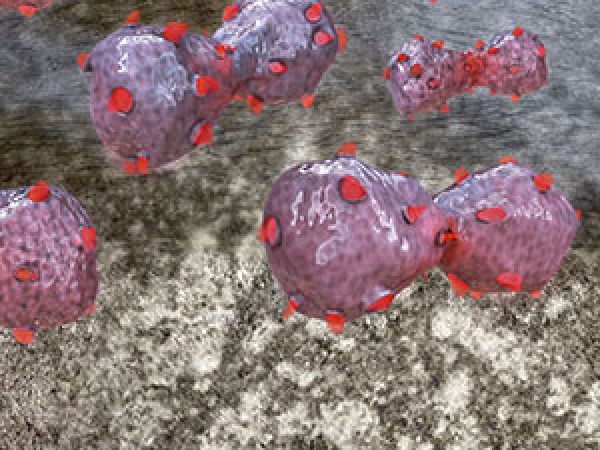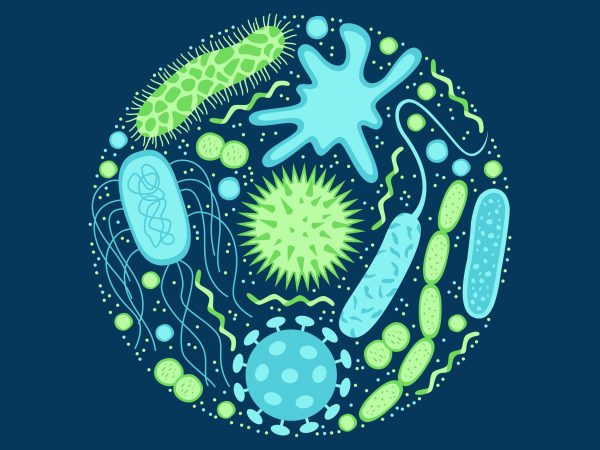AACR’s Global Scholars in Training Reflect on Annual Meeting Experience
This spring, in the inaugural year of the American Association for Cancer Research (AACR) Global-Scholar-In-Training Awards (GSITA) program, 15 young researchers from around the world arrived in Atlanta eager to share their knowledge and to draw upon the global brain trust of cancer scientists attending AACR’s 110th Annual Meeting. Recipients also participated in a networking and mentoring event hosted by Emory University’s Winship Cancer Institute which included a tour of laboratory and clinical facilities, presentations by doctoral students, and research and career advice from Emory faculty and staff.
The 2019 GSITA awardees were selected through a rigorous, peer-reviewed process. They represented nine low- and middle-income countries — Bangladesh, Brazil, China, Colombia, Egypt, India, Nigeria, South Africa, and Turkey — and were chosen for their outstanding promise as early-career researchers, with the hope that they would apply the education and inspiration they received from the meeting to their work in their home countries. In the weeks following the Annual Meeting, several of the awardees shared their thoughts on their experience.
What factors contribute to and/or hinder your research in your home country?

Carolina C. Gomes, DDS, PhD, Universidade Federal de Minas Gerais, Belo Horizonte, Brazil: My department in the Biological Sciences Institute provides me a highly collaborative environment, with access to some infrastructure and highly talented and motivated master’s and PhD students and postdoctoral researchers. However, bureaucracy in the public system in Brazil poses some difficulties for importation of some reagents necessary for research. Additionally, we are facing a serious economic crisis now, and research funding has been reduced in the last five years.
Alyaa F. Hessin, MPA, MS, The National Research Centre, Dokki, Giza, Egypt: One of the main factors that hinders research in my country is unavailability of equipment, kits, and reagents. Everything is imported from overseas; therefore, it takes a very long time to arrive. The supplies might cost five times the original price because of customs and shipping fees.
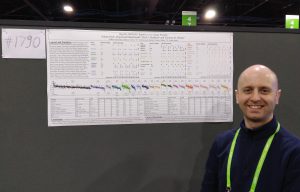
Ozhan Ocal, PhD, Bilkent University, Ankara, Turkey: The funding in my home country is very limited when compared to that in the United States. Almost all research-related material and devices need to be imported, and there is no tax exemption for them, even for nonprofit organizations. This, coupled with very high import taxes, means research is maybe twice the cost of that in the U.S. and other developed countries. This means that very few high-impact papers come out of my country. Those that can be published are almost always due to international collaborations with groups in more highly resourced countries.
Titilope M. Dokunmu, PhD, Covenant University, Ota, Nigeria: Economically, the cost of undertaking any research in my home country confines the type of research studies that can be designed. My home country battles a higher burden of certain cancers. Culturally, there are some beliefs that limit research engagement, hence public enlightenment is needed to promote cancer research.
Mohamed H. Osman, Zagazig University, Zagazig City, Egypt: I am interested in data science and machine learning, and I hope to implement technologies such as deep learning in solving problems in cancer care. In my home country, we still don’t have the sufficient amount of digital data to support my research in data science. We lack the necessary infrastructure for it. So, one of my long-term goals is to provide the requirements necessary to strengthen the National Cancer Registry in Egypt.
Pauline J. van der Watt, PhD, University of Cape Town, Cape Town, South Africa: I am fortunate to work in a lab with good facilities at the University of Cape Town, where I have excellent mentors and staff members. However, funding can be challenging, as a lot of funding in South Africa gets directed toward research aimed at investigating communicable diseases, like HIV, tuberculosis, and malaria, rather than cancer.
How does your home country or culture influence your work?
Ana Karina Oliveira, PhD, Brazilian Center for Research in Energy and Materials – CNPEM, Campinas, Brazil: As in all countries, we always pay attention to the most significant problems and questions of the time. During my masters and PhD programs, I worked on some bioactive molecules from snake venom, their biological characterization, and their effect on hemostatic disturbance. In Brazil, snakebite is still a serious public health problem, but snake venom is a rich source of bioactive molecules, which are used in studies of molecular mechanisms and the development of new drugs.
Another issue specific to Brazil is oral cancer, part of my current work. This disease affects a significant number of people in Brazil, and it is related to the use of tobacco and alcohol.
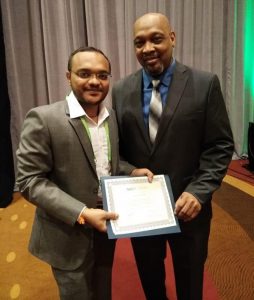
Saumya Patel, PhD, Gujarat University, Ahmedabad, India: I am from the Gujarat region of India, where the incidence of head and neck cancer is very high, due largely to chewing tobacco. This has influenced me to work in the area of oral squamous cell carcinoma (OSCC) and other mouth-related cancers. As there are no biomarkers available for OSCC, I am trying to find various prognostic or diagnostic markers related to it.
Tirzah Braz Petta Lajus, PhD, Universidade Federal do Rio Grande do Norte, Natal, Brazil: I consider research as a field with no boundaries. In research, we can have many influences from different countries and different areas of expertise. In Brazil, we have the influence of many cultures, and our ways of doing research reflect this.
Did your attendance at the AACR Annual Meeting assist in refining your research and career path?
Lajus: Yes, I feel that my experience at the meeting will influence several areas of my research and career. For one, I am inspired to further explore the connections between clinical and basic research. I learned more about using public data for genomics. And I am excited to more carefully consider the topic of minorities in cancer research.
Okuboyejo: Absolutely! I learned newer techniques and leading information in cancer research from different experts.
Oliveira: Yes, always. The AACR Annual Meeting, as well as other conferences, allows me to expose my work to the tremendous scientific public, as well as to know about other new studies that are in progress around the world. Since I attended the Annual Meeting for the first time in Chicago in 2018, I intensified my focus in studies on the mechanisms of development and progression of oral cancer and began the search for new therapeutic targets, especially those related to immunotherapy.
Van der Watt: Yes, my attendance at the AACR Annual Meeting was very beneficial. I learned so much and was able to get an idea of what the current research focus areas are, and where I should direct my research.
Wu Zhang, PhD, Shanghai Institute of Hematology, Shanghai, China: Absolutely. I learned a lot and made great memories at this AACR Annual Meeting. In addition, I am going to work as a postdoctoral fellow in a lab at the University of Pennsylvania, starting this summer. Maybe I will meet some of my new AACR contacts in Philadelphia!
Have you established new cancer research collaborations or networks since your participation in the AACR Annual Meeting?
Gomes: As part of the GSITA award, I attended a networking event where I received some very good advice. I had been feeling really frustrated that I did not have any new grants approved in the last year in my home country. One of panelists at the networking event advised me to search for different research grant calls and to try to adapt the focus of my research according to what people were looking for in this moment. I followed this advice and I have currently submitted my first NIH research grant proposal! I feel much more motivated now than before attending the AACR Meeting.
Hessin: I met one of my school colleagues at the AACR Annual Meeting. He introduced me to his former PI (principal investigator), who is working in melanoma. The PI interviewed me, and he is willing to host me in his lab next January as a visiting scholar.
Osman: I have already started three research projects in collaboration with researchers I met during the Annual Meeting. We are working together to try to validate my machine learning models on data from different resources and from different countries, with the hope that someday, they may be generalizable to the whole population.
Patel: I had networking meetings and talks with people during the conference. In the future, I expect some collaborations to result. The GSITA award is one of the best awards I have ever received in cancer research, and will definitely help in the submission of future projects.
How may the GSITA award help in furthering your opportunities?
Ocal: I intend to stay in touch with people I met at AACR 2019. I would be happy to assist anybody from the AACR if they would like to pursue some research opportunities for an international study or plan to visit my city or country for business or social networking.
Osman: I wouldn’t have been able to attend the meeting without the GSITA award. Besides the huge scientific impact of the meeting, it was one of the most important events in shaping my medical training and it opened a priceless door for international research collaboration.
Van der Watt: The GSITA award allowed me the opportunity to be exposed to the latest research, meet future collaborators, tour a cancer research institute and clinical trials unit, hear from a panel of experts on cancer development strategies, and be part of a network of researchers at the AACR. I am very grateful for the GSITA award and the opportunities it has afforded me.
Wu: It helped me a lot. On June 1, I learned that I received a very generous grant from the Shanghai Scientific Young Rising-Star Program. I believe that the GSITA award helped me secure this new award and has proven both nurturing and fruitful to my scientific career development.
The AACR’s International Affairs office also surveyed grant recipients to assess the quality of their experience. Responses were anonymous, but here’s what a few of the researchers had to say:
“Some things were very striking to me at this conference: first to have our study recognized; second, the interview with the GSITA team; all of you gave me essential advice; and third, the visit to Emory Hospital. It was very enriching to see a clinical trial environment so modern, organized, and scientifically productive.”
“It was really an avenue to meet with researchers, acquire so much exposure, and improve my scientific knowledge base.”
“I was able to attend the conference without having to worry about anything else.”
“I returned to my country with some copies of the most cited AACR research publications, and I distributed them to all the academic/research staff in my department.”
“The organization of the GSITA was perfect from the email of notification until the last day of the meeting.”
“Thank you for making my attendance to the AACR Annual Meeting possible. Without your support, it would have probably not happened. I thank the AACR and the people who organized this award for all their attention, care, and nice discussions during the meeting. Best wishes.”
The names and affiliations of the 2019 GSITA recipients, along with the titles of the abstracts they submitted to the AACR Annual Meeting are available on the AACR website. A new cohort of GSITA recipients will be selected to participate in AACR’s Annual Meeting 2020 in San Diego, California. Interested early-career scholars can find more information on eligibility requirements and application details, and can sign up to be notified when the application becomes available at AACR.org/GSITA. The GSITA 2020 application will be available in Fall 2019. If you are interested in funding a Global Scholar-in-Training award, please contact [email protected].

